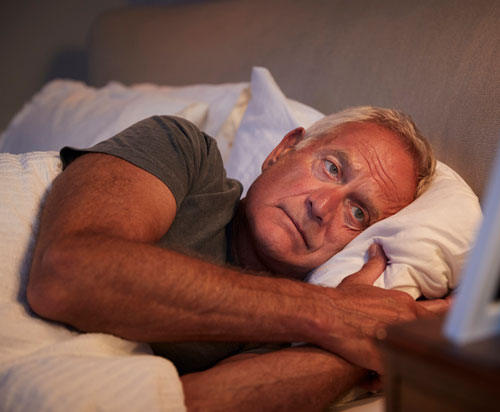Six hours.
That’s the minimum amount of sleep you need each night for a healthy heart, according to a major new study.
The research was published in the Journal of the American College of Cardiology.[1]
About 4,000 subjects were divided into groups depending on how much sleep they got.
The researchers measured levels of atherosclerosis in the subjects’ femoral and carotid arteries using ultrasound. Atherosclerosis is another name for hardening of arteries. It’s what causes most heart attacks and strokes.[2]
The study found that chronic lack of sleep and bad-quality sleep is linked to higher risk of atherosclerosis.
Dr. Jose Ordovas was the lead researcher. He said that sleep is “one of the weapons we use to fight heart disease.”.[3]
The study found that people who got less than six hours a night had a 27% higher risk of body-wide atherosclerosis compared to those who got eight hours.
Subjects who had lousy-quality sleep and tended to wake up a lot during the night had a 34% higher chance of hardening of the arteries.
Dr. Ordovas said the study is the first to show that lack of sleep is “independently associated with atherosclerosis throughout the body.”
5 Ways to Get a Good Night’s Rest
It’s important to get good quality sleep for the sake of your heart—and your health in general.
Most of us know that alcohol, cigarettes, and heavy meals close to bedtime disrupt sleep. But there are other lifestyle and diet changes that can help give you a perfect night’s sleep:[4]
Melatonin. This hormone is produced by the pineal gland, which is in your brain. It regulates and encourages your natural sleep cycle. A great natural source of melatonin is tart cherries.
If you take a melatonin supplement, be careful not to take too much, which can actually harm sleep. Start with half the dosage recommended on the label. Typically, this will be about 1-2 mg. Melatonin works best for insomnia caused by jet lag or time change.[5]
L-tryptophan. This amino acid helps your body produce serotonin, which increases relaxation. Great sources of L-tryptophan include organic poultry, fish, eggs, and beef.
A cold room. Research has found that the best temperature for sound sleeping is between 60 and 67 degrees.[6]
Daily exercise. Even light exercise during the day helps you sleep at night. But don’t exercise within three hours of bedtime.
Avoid blue light after dark. A Harvard Medical School study found that using blue light-emitting devices like computers, tablets, and smartphones just before bedtime can wreck your sleep. Blue light suppresses melatonin production. If you are a bedtime reader, stick to an old-fashioned printed book.[7]
One more thing…
How long has it been since you sprung for a new mattress? Sleep researchers have found that mattresses older than 10 years can lose their comfort and hinder sound sleep.
If you’ve been sleeping on the same mattress for a decade or more, consider buying a new one.
Editor’s Note: Our researchers have uncovered a powerful vitamin that can help cut your risk of heart attack by up to 33%. And they’ve tracked down a 10-minute test that has can help pinpoint your risk of heart attack death—so you can take action now. Learn more HERE.
Related Articles
3 Cups of Coffee a Day Help Your Heart
A Better Solution for Irregular Heartbeat
One Healthy Habit Cuts Heart Attack Risk by Nearly 400%
[1]https://www.ncbi.nlm.nih.gov/pubmed/?term=10.1016%2Fj.jacc.2018.10.060
[2] https://www.webmd.com/heart-disease/what-is-atherosclerosis#1
[3]https://consumer.healthday.com/sleep-disorder-information-33/misc-sleep-problems-news-626/why-your-heart-needs-a-good-night-s-sleep-741352.html
[4]https://sleepfoundation.org/sleep-tools-tips/healthy-sleep-tips
[5]https://www.institutefornaturalhealing.com/2013/09/the-top-5-natural-sleep-aids/
[6]https://sleepfoundation.org/sleep-tools-tips/healthy-sleep-tips
[7]https://www.institutefornaturalhealing.com/2016/05/harvard-study-never-do-this-in-bed/

